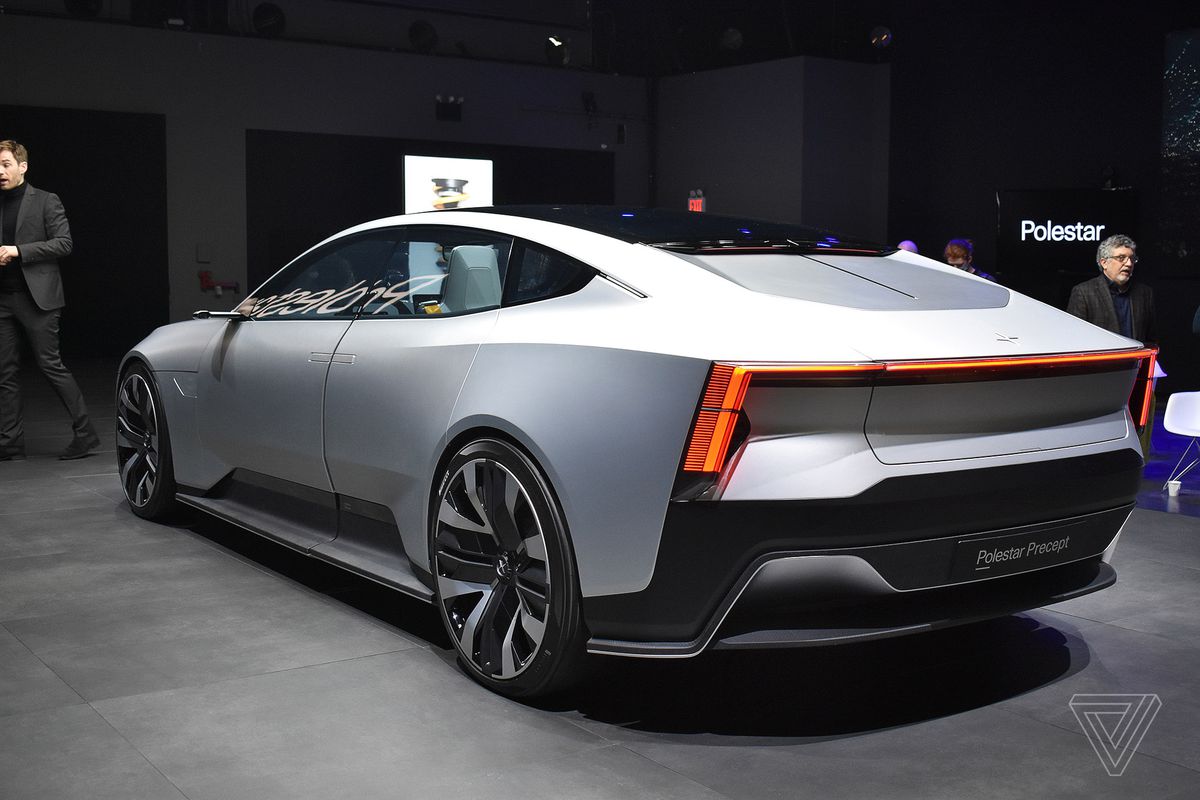Polestar is the latest electric vehicle company to go public, listing its stock on the Nasdaq exchange Friday after successfully merging with a special-purpose acquisition company, or SPAC. The company plans on using the $850 million in fresh capital to fund its three-year plan to make several new electric models and become profitable.
The Swedish company, which is a joint venture between Volvo and its parent company Geely, is going public amid broader uncertainty around EV stocks. Several EV startups have gone the SPAC route to becoming publicly traded only to see their stock price tank after early stumbles.
Polestar is slightly different, having been selling and delivering its Polestar 2 electric fastback sedan to customers in the US, Europe, and China since late 2020. The company’s next EV, the Polestar 3 SUV, will debut in October 2022 and will be manufactured in the US. And, it recently secured a deal estimated to be worth over $3 billion to sell 65,000 vehicles to Hertz.
:no_upscale()/cdn.vox-cdn.com/uploads/chorus_asset/file/23074688/ahawkins_211202_4920_0017.jpg)
“This is a hugely proud moment for the entire team at Polestar,” Thomas Ingenlath, CEO of Polestar, said in a statement. “We will now open a new chapter in our story that can be summarised in one word – growth.”
Polestar said it has received 32,000 orders for the Polestar 2, an increase of 290 percent over last year’s order numbers. The company aims to be selling 295,000 vehicles a year by 2025 — 10 times the amount it sold in 2021.
SPAC deals exploded in popularity during the pandemic, especially for electric and autonomous vehicle companies. There are fewer disclosures required than traditional initial public offerings, and startups are allowed to present forward-looking projections to investors, which can help justify lofty valuations.
There have been some noticeable flops. Lordstown, Canoo, and Nikola are among the EV companies that have hit some speed bumps after going public. There is a sense that, in rushing to take advantage of the SPAC boom, these startups have been left to cope with the demands of being listed on a major stock exchange.
Even EV companies that have opted to go the more traditional IPO route have experienced turbulence. Rivian saw its stock price drop after early stumbles around the pricing and deliveries of its first EV, the R1T electric truck.
Polestar’s ties to Volvo and Geely likely make it an easier sell to investors than other less well-connected EV startups. The company has positioned itself as a competitor to Tesla, with an emphasis on sleek, premium vehicles made from sustainable and vegan materials.
By merging with a “blank check” company funded by billionaire and “serial SPAC backer” Alec Gores and investment bank Guggenheim Partners, Polestar has said it will have an “enterprise value” of $20 billion. The deal will also net Polestar a lot of cash: $800 million from Gores Guggenheim’s trust account and $250 million in cash from private investment in public equity (PIPE) financing “anchored by top-tier institutional investors,” the company says.
Those other investors include “Volvo Car Group and affiliates of Geely Chairman Eric Li” and actor and activist Leonardo DiCaprio among others, Polestar says. It is the biggest blank-check merger in the EV sector since Lucid Motors struck a $24 billion deal in February.
The company was spun out of Volvo in 2016 as its performance subbrand but has since recast itself as an EV-only marque. Polestar has only released two vehicles so far: the $155,000 hybrid coupe Polestar 1 and the Polestar 2 sedan. In addition to the Polestar 3, the company is also planning on releasing a compact SUV (the Polestar 4) in 2023 and the Polestar 5 (née Precept) sports sedan in 2024. The company also unveiled a sleek roadster concept called the Polestar O2 and is putting its high-performance version of the Polestar 2 into limited production.
Photography by Andrew Hawkins / The Verge
